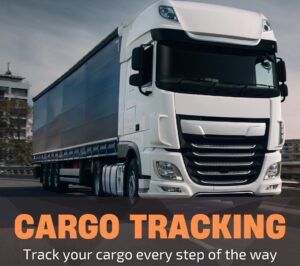
Trucks are the lifeblood of commerce, transporting goods across vast distances and keeping economies moving. Yet, with their size, weight, and often long hours on the road, trucks also present unique risks, both to their operators and to other road users. Understanding truck insurance and implementing effective risk management strategies is crucial for protecting the drivers, businesses, and communities that rely on these indispensable vehicles.
The Importance of Truck Insurance
Truck insurance, also known as commercial truck insurance or motor carrier insurance, provides coverage for trucks and their operators in the event of accidents, property damage, bodily injury, or other liabilities. Given the potential for significant financial losses in the event of a truck accident, insurance coverage is not only advisable but often mandatory for trucking companies and owner-operators.
Types of Truck Insurance Coverage
- Liability Insurance: This coverage protects against claims for bodily injury or property damage caused by the truck or its driver. It typically includes coverage for legal defense costs and settlements or judgments arising from lawsuits.
- Physical Damage Insurance: This coverage pays for repairs or replacement of the truck in the event of damage from accidents, theft, vandalism, or other covered perils.
- Cargo Insurance: Cargo insurance provides coverage for the goods being transported by the truck in case of damage or loss during transit.
- Medical Payments Insurance: This coverage reimburses medical expenses for the truck driver and passengers in the event of injuries sustained in an accident, regardless of fault.
- Uninsured/Underinsured Motorist Coverage: This coverage protects against damages caused by drivers who are either uninsured or underinsured, ensuring that the truck operator is not left financially vulnerable in the event of an accident with an inadequately insured motorist.
Mitigating Truck Accident Risks
While insurance provides essential financial protection, preventing truck accidents in the first place is paramount. Here are some key strategies for mitigating truck accident risks:
- Driver Training and Safety Programs: Comprehensive training programs and ongoing safety initiatives can help ensure that truck drivers are well-prepared to operate their vehicles safely and responsibly.
- Regular Vehicle Maintenance: Proper maintenance and inspection of trucks are essential for identifying and addressing potential mechanical issues before they lead to accidents.
- Adherence to Hours of Service Regulations: Fatigue is a significant risk factor in truck accidents. Compliance with hours of service regulations helps prevent driver fatigue and reduces the likelihood of accidents caused by drowsy driving.
- Investment in Technology: Advanced safety technologies such as collision avoidance systems, lane departure warning systems, and telematics can help improve driver awareness and prevent accidents.
- Risk Management Protocols: Implementing risk management protocols, such as route planning, load securement procedures, and emergency response plans, can help minimize the likelihood of accidents and mitigate their impact if they occur.
Conclusion
Truck insurance plays a vital role in protecting the drivers, businesses, and communities that rely on commercial trucks for the transportation of goods. By understanding the types of coverage available and implementing effective risk management strategies, trucking companies and owner-operators can mitigate the financial and operational risks associated with truck accidents. Ultimately, a proactive approach to safety and insurance helps ensure the continued safety and efficiency of trucking operations, benefiting both the industry and society as a whole.
Specialized Coverage for Specific Needs
- Bobtail Insurance: This coverage provides liability protection for trucks when they are being driven without a trailer attached. It is particularly relevant for owner-operators who may operate their trucks without a trailer while not actively engaged in transporting goods.
- Non-Trucking Liability Insurance: Also known as “NTL” or “bobtail insurance,” this coverage provides liability protection for trucks when they are being used for non-business purposes, such as personal use or commuting.
- Trailer Interchange Insurance: This coverage is designed for trucking companies that interchange trailers with other carriers. It provides liability protection for damage to trailers that are in the insured’s care, custody, or control.
- Environmental Liability Insurance: Given the potential for environmental damage in the event of a truck accident involving hazardous materials, environmental liability insurance provides coverage for cleanup costs and third-party liabilities related to pollution or contamination.
Regulatory Compliance and Insurance Requirements
Trucking companies and owner-operators must comply with various federal and state regulations governing insurance requirements for commercial vehicles. Failure to maintain adequate insurance coverage can result in fines, penalties, and even the loss of operating authority. It’s essential for trucking companies to stay informed about insurance requirements and work with knowledgeable insurance agents or brokers to ensure compliance.
Investigating Truck Accidents
In the unfortunate event of a truck accident, thorough investigation and documentation are crucial for determining liability and resolving insurance claims. Truck accidents often involve complex legal and insurance issues, including multiple parties, potential regulatory violations, and disputes over liability. Working with experienced legal and insurance professionals can help ensure that accident investigations are conducted effectively and that the rights of all parties involved are protected.
Insurance Costs and Premium Factors
The cost of truck insurance premiums can vary widely based on factors such as the type of coverage, the size and weight of the truck, the driving record of the operator, the cargo being transported, and the geographic location of operations. Trucking companies and owner-operators can take steps to manage insurance costs by implementing safety measures, maintaining clean driving records, and shopping around for competitive insurance rates.
The Human Element: Supporting Truck Drivers
Behind every truck is a skilled and dedicated driver who plays a vital role in the safe and efficient operation of commercial vehicles. Supporting truck drivers with comprehensive training, competitive compensation, access to healthcare, and resources for managing stress and fatigue is essential for promoting safety on the roads and reducing the risk of accidents. Investing in driver wellness and retention not only benefits individual drivers but also contributes to the overall safety and success of the trucking industry.
In conclusion, truck insurance is a critical component of risk management for trucking companies and owner-operators. By understanding the specialized coverage options available, complying with regulatory requirements, conducting thorough accident investigations, managing insurance costs, and supporting truck drivers, stakeholders can mitigate the risks associated with truck accidents and ensure the continued safety and viability of commercial trucking operations.


